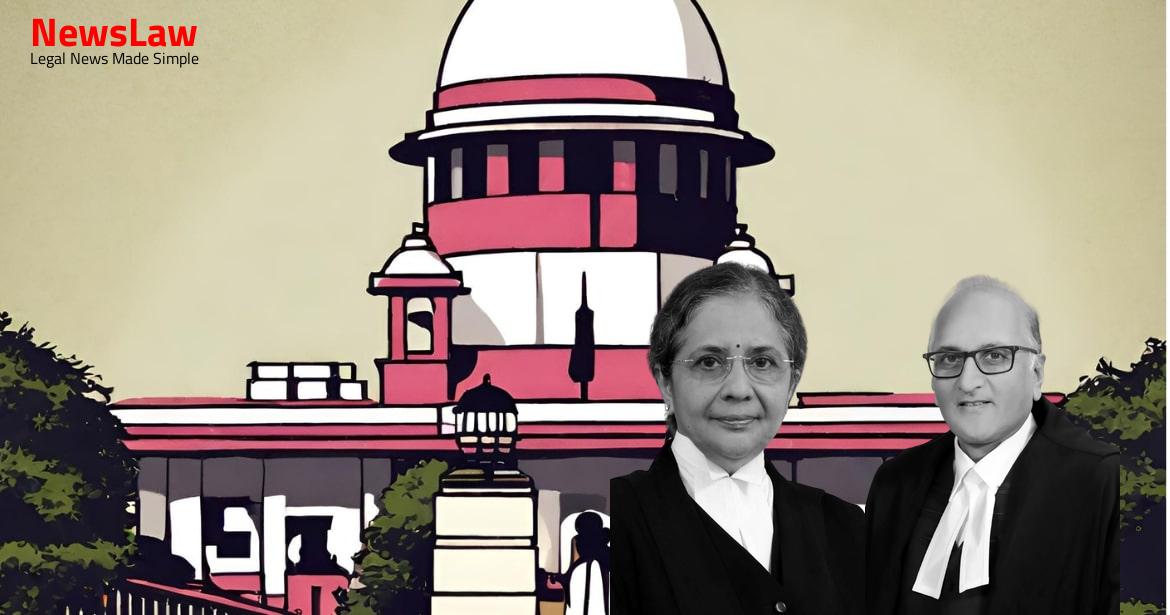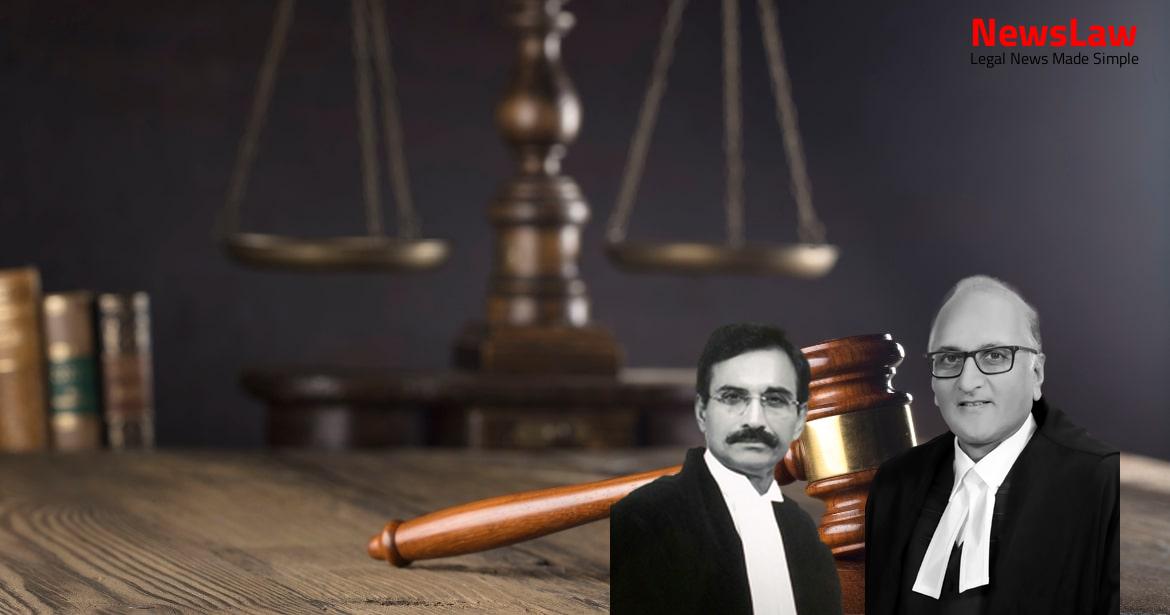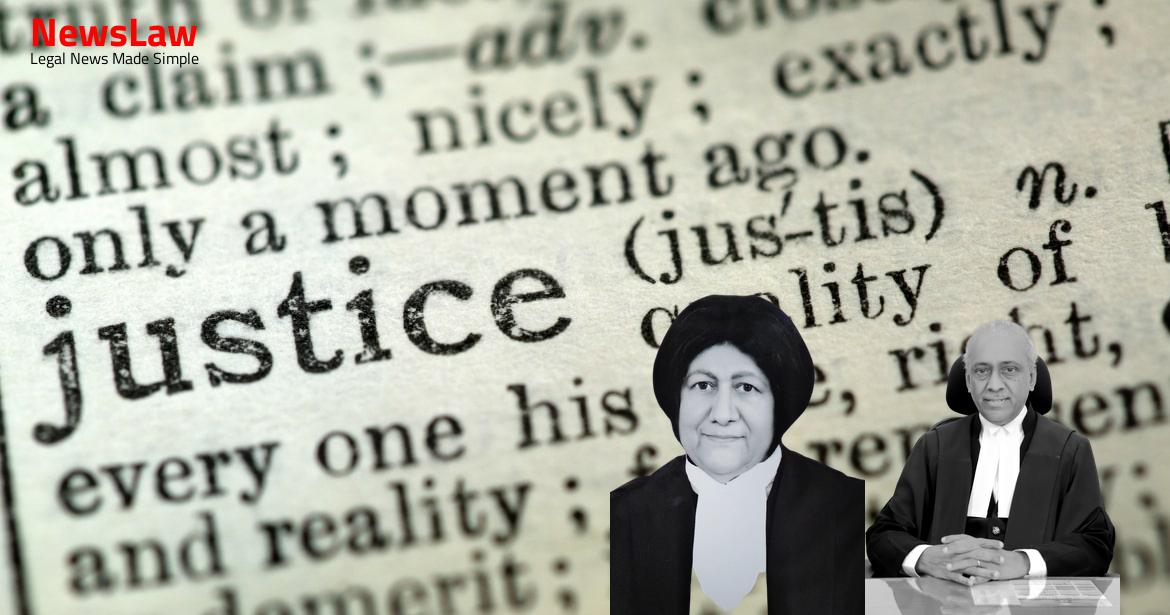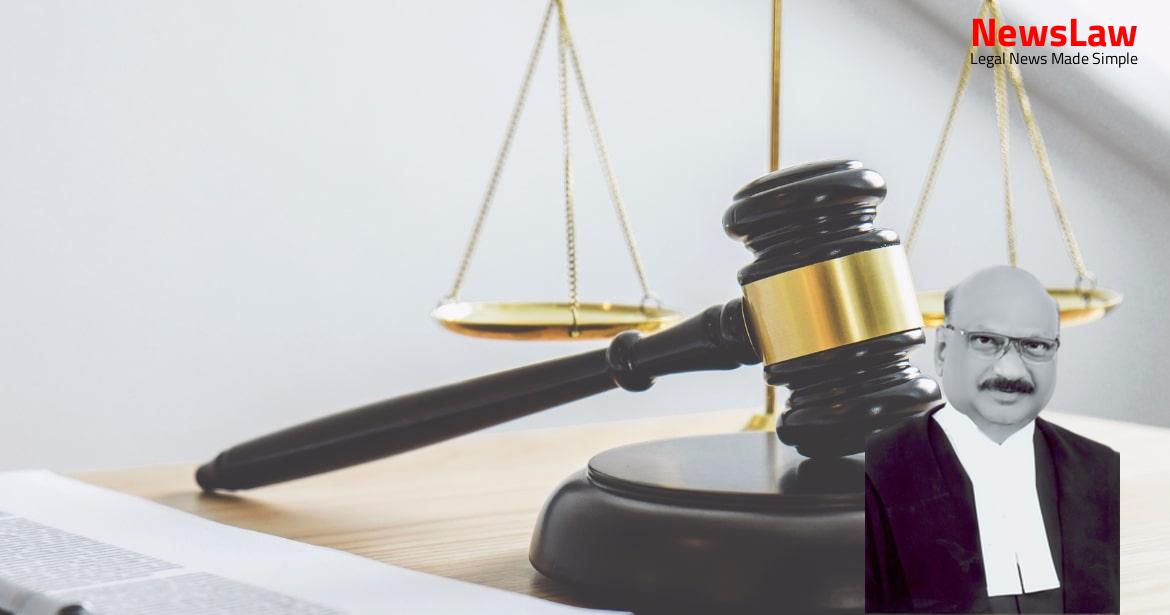Explore the legal nuances of upholding merit in reservation policies as outlined in a recent High Court decision. The court’s scrutiny of the selection process sheds light on the principles governing vertical and horizontal reservations. The emphasis on prioritizing merit among candidates from reserved categories underscores the importance of a fair and equitable selection process. Stay tuned to uncover the insightful legal analysis in the context of reservations and meritocracy.
Facts
- The revised Select List was found to be incorrect in law and required modification.
- The challenge arose from the selection process for Assistant Professors in Madhya Pradesh.
- Revised Select Lists were published but were vulnerable and quashed by the High Court.
- Candidates who were aggrieved by the revised Select List filed appeals.
- Issues arose regarding the allocation of seats in horizontal reservation, specifically for OBC (Female) candidates.
- The High Court observed that candidates not falling in the Unreserved Category could not be brought from other reserved categories to accommodate the horizontal quota meant for Unreserved candidates.
- The statutes referred to were Section 4(4) of the 1994 Act and Rule 3 of the 1997 Rules regarding reservations for women.
- The merits of OBC (Female) candidates were overflowing in the selection process for Assistant Professors in all subjects.
Also Read: Electoral Malpractices in Mayor Election
Issue
- Issue: Whether OBC (Female) candidates who scored more marks than General Category female candidates can secure a seat in the unreserved female category.
- The question is also raised on whether reserved category candidates scoring higher marks than General Category candidates are entitled to seats in unreserved categories under horizontal reservation.
- High Court stands by the principle that migration of reserved category candidates based on merit for General Category seats applies to vertical reservation but not in cases of horizontal compartmentalized reservation.
Also Read: Balancing Power and Transparency: Electoral Bonds Struck Down, Disclosure Mandated
Arguments
- Mr. S.K. Rungta presented a different view on behalf of more meritorious candidates than those represented by Mr. Patwalia.
- Mr. P.S. Patwalia argued that the controversy had already been concluded by the Supreme Court in a previous case.
- Dr. Rajeev Dhavan and other counsel argued that the appeals deserve to succeed based on the law laid down by the Court.
- They relied on certain observations in the cases of Anil Kumar Gupta and Rajesh Kumar Daria to support their view.
- Dr. Rajeev Dhavan submitted that the candidates he represented were already employed and rendering service, requiring no further action.
- The High Court’s conclusion that OBC (Female) candidates were entitled to be considered in the Unreserved Female category was considered correct.
- It was held that the Unreserved Female category must include every person who could be considered based on merit.
- Dr. Dhavan argued that for the category of ‘General’ or ‘Unreserved’, consideration must be restricted to those who do not belong to SCs, STs, or OBCs.
- Mr. Rungta, representing respondent no.6 and others, highlighted the prejudice caused to his clients due to a delayed appointment compared to other candidates, leading to loss of seniority and emoluments.
- Mr. Saurabh Mishra, representing the State, supported Mr. Patwalia’s submissions and mentioned the presence of additional statutory Rules in favor of the State’s view.
- Ms. Anuradha Mishra, representing MPPSC, acknowledged that the candidates represented by Mr. Rungta are entitled to seniority as per the revised Select List.
- The judgment in Saurav Yadav emphasized giving merit precedence even while applying horizontal reservations, considering more meritorious SC, ST, or OBC candidates against unreserved seats.
- The High Court’s observations in the current case were deemed incorrect as they did not align with the principles laid down in Saurav Yadav regarding reservations.
- The court clarified that in essence, there is no distinction between vertical and horizontal reservations when it comes to prioritizing merit among candidates, including those from reserved categories.
Also Read: Recall of Resolution Plan Approval: Legal Analysis
Analysis
- The instant matters are fully covered by the pronouncement of the Court in Saurav Yadav (supra).
- Service upon some of the respondents in the present matters was incomplete, leading to segregation of the batch for separate hearings.
- Consideration for accommodation at the horizontal reservation stage is limited to the vertical reservation concerned or social reservation category.
- Candidates from the same category must be considered for filling up seats meant for that category.
- Allocation of seats for OBC(F) candidates must be maintained at 33% under Rule 3 of the 1997 Rules.
- The second view penalizes merit and should not be approved, as it may lead to irrational results.
- The correct view taken by High Courts of Rajasthan, Bombay, Gujarat, and Uttarakhand was endorsed, while the view of High Courts of Allahabad and Madhya Pradesh was not approved.
- Candidates must be accommodated against their respective categories at the stage of horizontal reservation.
- Placement in the merit list and allotment of seats are distinct processes.
- The law relating to vertical and horizontal reservations is clarified with a focus on migration of reserved category candidates based on merit for General category seats.
- The High Courts’ decisions related to horizontal reservation were discussed and contrasted, and the second view was deemed incorrect.
- Prizes and scholarships should be awarded based on merit, with reservations also considered.
- The judgment and order under appeal were set aside, and the writ petitions challenging the revised Select List were dismissed.
- The principle of mobility or migration upheld by the Court would have discriminatory application if not applied to women in special categories as well.
- Candidates from reserved categories entitled to be selected in ‘Open or General Category’ based on merit.
- Preference to widow or divorced women in appointments as per the rule.
- Two views considered – first view by certain High Courts and second view by other High Courts.
- Second view allows reserved category candidates to be adjusted only against their own categories under vertical reservation, not against ‘Open or General Category’.
- Different principles must be adopted at two stages – filling ‘Open or General Category’ seats and accommodating candidates for horizontal reservation.
- Principle applicable to vertical reservations does not apply to horizontal reservations.
- Observations from various Court decisions and Constitution Bench on eligibility rights and reservations.
- Second view results in confining the number of women candidates in social reservation categories, impacting logic and merit.
- Collapse of second view when more than stipulated percentage of women candidates are highly meritorious.
- Candidates cannot be held responsible for anomaly due to late appointments
Decision
- Candidates at higher levels of the revised list shall be entitled to salaries and emoluments for the period they were deprived of service.
- Seniority to be reckoned from the deemed date of appointment, not the actual date.
- Probation issue for all candidates to be considered together as one batch.
Case Title: SADHANA SINGH DANGI Vs. PINKI ASATI (2021 INSC 906)
Case Number: C.A. No.-007781-007781 / 2021



